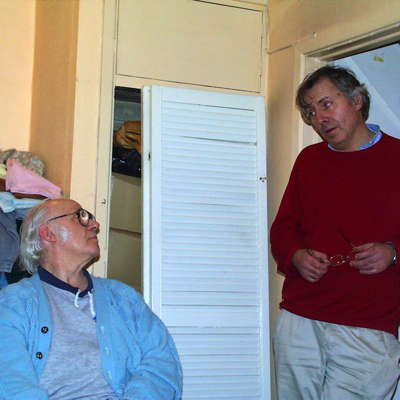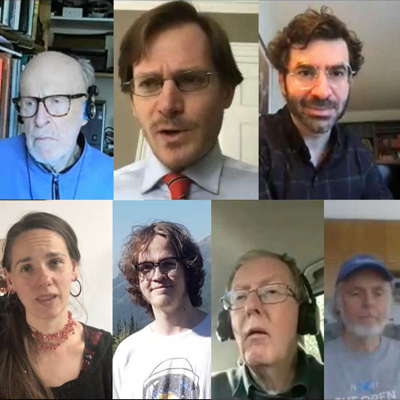- Piccinni
- Maurizio Pollini
- Colin Matthews
- New York Metropolitan Opera
- Felice Romani
- Greek Cypriot
- Sherborne Summer School of Music
- Dai Miller
 25 YEARS: Classical Music Daily celebrates twenty-five years of daily publication with an hour-long video featuring some of our regular contributors.
25 YEARS: Classical Music Daily celebrates twenty-five years of daily publication with an hour-long video featuring some of our regular contributors.
 VIDEO PODCAST: John Dante Prevedini leads a discussion about Classical Music and Artificial Intelligence, including contributions from George Coulouris, Michael Stephen Brown, April Fredrick, Adrian Rumson and David Rain.
VIDEO PODCAST: John Dante Prevedini leads a discussion about Classical Music and Artificial Intelligence, including contributions from George Coulouris, Michael Stephen Brown, April Fredrick, Adrian Rumson and David Rain.
Music of the Spheres
MIKE WHEELER listens to an eclectic programme from pianist Ryan Drucker at the Buxton Festival
Pianist Ryan Drucker's Buxton Festival programme - St John's Church, Buxton, UK, 8 July 2024 - was nothing if not eclectic, beginning with the last two of Brahms' Op 10 Ballades. His account of No 3 had an intensity that relished Brahms' oddly abrupt phrases, and made something ethereal of the later high-lying passage. His gentle reading of No 4 carried hints of the composer's late piano pieces, while the downward-rolling figures had all the firmness they needed.

Belgian-born pianist Ryan Drucker
Dohnányi subtitled his Winterreigen (Winter Round-dances), Op 13, 'Ten Bagatelles'. A sequence of colourful short tone-poems, it begins with a Schumannesque 'Dedication', including an almost direct quotation from Carnaval. Drucker was a reliable guide to the pictures in this engagingly quirky exhibition, taking in a bold, assertive 'Merry Brothers' March'; a flowing, 'To Ada'; 'Friend Viktor's Mazurka', with its capricious opening and tricksy ending; the billowing textures of 'Music of the Spheres' - a tongue-in-cheek reference to a hot-air balloon trip Dohnányi took with a friend; the gently rippling 'Amiable Waltz'; the seething mischief of 'At Midnight'; the jolly 'Great Company'; sombre 'Dawn'; and touching 'Postludium', also reminiscent of Schumann.
John Corigliano's Fantasia on an Ostinato takes its cue from the repeated rhythmic pattern underlying the second movement of Beethoven's Symphony No 7. Beginning with a repeated single note, it slowly opens out to light/dark contrasts, forceful gestures and quiet explorations, takes us to a succession of very different places, at times obsessive, at times graced with birdsong, with Beethoven's theme in full stealing in towards the end. Drucker was in complete command of this compelling piece.
He ended with Johann Strauss II's waltz Künstlerleben (An Artist's Life), in Leopold Godowsky's self-indulgent paraphrase - you can hardly call it a transcription - and for much of the time, Strauss is lucky to get a word in. Drucker had it all within his grasp, no question, but the piece itself is almost comically over-long, verging on the tasteless. 'Less is more' was clearly not part of Godowsky's artistic credo.
Copyright © 30 July 2024
Mike Wheeler,
Derby UK



